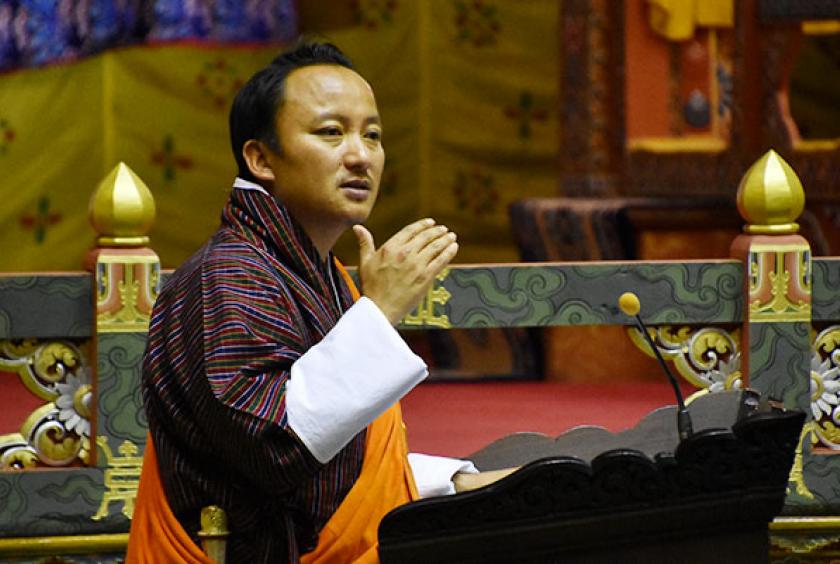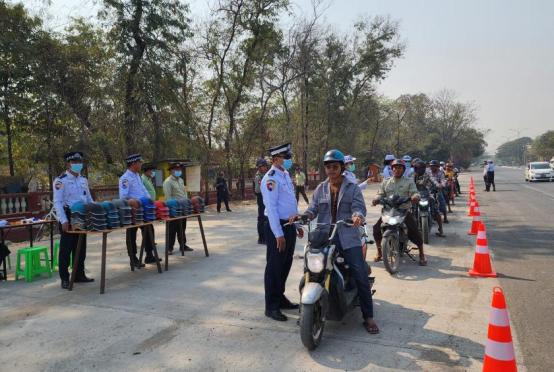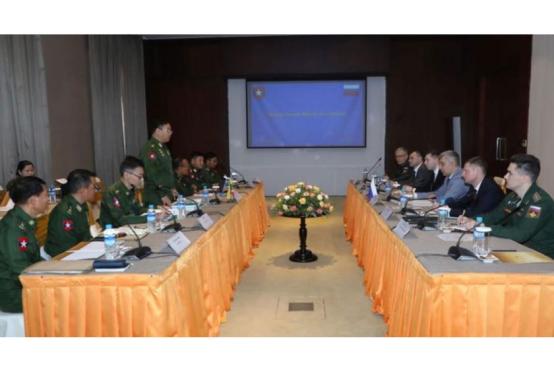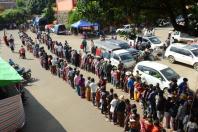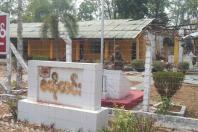Thimphu (Kuensel) - In a major overhaul to the Pay Commission’s (PC) recommendations, the government proposed to slash the pay revision from executive level and above while increasing it for the P level and below.
Finance minister, Namgay Tshering who proposed the pay revision as money Bill, which the Speaker also endorsed, said the government made certain changes to the PC’s recommendations in keeping with the principle of narrowing the income gap.
The government also chose to revise the salary of the local government (LG) functionaries, in contrast to the PC’s recommendation where the salary of LG functionaries was not considered, except for Thrompons. The PC stated that the salaries of other LG functionaries were increased by 40 percent in 2014. It did not find any rationale to revise the pay of LG functionaries, as income erosion between 2017 and 2019 was minimal.
However, the PC noted that the pay scale of the Thrompons are mapped with EX2 in the civil service and recommended a hike of 15 percent.
The government however, proposed for a 14 percent hike for Thrompons, 18 percent of Gups, Mangmis and Dzongkhag Thromde Thuemi and 24 percent for Tshogpas.
The government proposed to bring down the pay hike for Prime Minister, Cabinet Ministers and equivalent post holders (Chief Justice, Opposition Leader, Speaker and Chairperson of the Council) from the recommended 14 percent to six percent. The difference between the PC’s recommendation and government’s proposal, results in a saving of Nu 14,400 from the Prime Minister’s salary and Nu 10,400 a month from the salary of ministers and equivalent post holders. The total difference amounts to at least Nu 297,600 a year considering annual increments.
Similarly, the proposed revision for Deputy Speaker of NA, Deputy Chairperson of NC, members of Parliament, Chairperson of the ACC, the Chief Election Commissioner, the Auditor General, Chairperson of RCSC, Chief justice and Drangpons of High Court and Commissioners were also slashed by two percent, from 14 to 12 percent.
The Fuel and Maintenance Allowance for MPs are proposed to be revised from Nu 7,000 to Nu 10,000 a month, discretionary allowance of MPs from Nu 100,000 to Nu 150,000 a year, which the PC did not recommend. The driver’s allowance for MPs is proposed at Nu 10,000 a month.
“The government considering the demanding nature of work for the MPs while engaging with their constituents considered revising the discretionary allowance for the MPs,” the Bill stated.
Including all the allowances, an MP would be now getting more than Nu 100,600 including the house rent allowance, compared with the existing gross pay of more than Nu 85,000 a month.
In the P level, the change from the existing salary is between Nu 3,000 a month to Nu 5,180. Including the house rent allowance there would be an increase between Nu 3,700 and Nu 6,600.
However, in the ESP and GSP, the total income increases by at least Nu 5,950 and Nu 6,310 respectively, including the house rent allowance of Nu 3,500. In addition, GSP and ESP employees are also included in the provident fund and entitled for annual increment.
The government also considered revising the discretionary allowance for Dzongdags from Nu 50,000 to Nu 75,000 per annum.
“As many perceive, the revision is not intended to ‘even out’ the pay and entitlements of different levels. Instead, we are trying to ensure that our public servants are compensated and incentivised for their responsibilities, and also to ascertain an income that matches economic reality of the country,” a press release from the Prime Minister’s Office stated.
“I personally feel our public servants are deserving and if not limited by the coffer, we could have proposed for an even higher revision. However, within the limitations, we have tried to motivate individuals through other allowances. We have also tried to encourage regular trainings in-country, knowing that we have enough resources and infrastructure within,” Lyonchhen stated in the press release.
Should the government’s proposal get through, teaching becomes the highest paid profession in the country. For example, a senior teacher with more than 30 years of experience would receive 55 percent raise and additional allowance of 20 percent as “distinguished category” on Bhutan Professional standards for teachers (BPST). That takes the total to 75 percent.
A rough calculation reveals that a teacher with more than 20 years of experience would draw a gross salary of more than Nu 70,000 a month, including the housing allowance.
The government also proposed to do away with the existing gratuity ceiling of Nu 1.5M to help civil servants retire with security and dignity. While the PC recommended increasing the Provident Fund contribution from the government by 7 percent, the government proposed revising its contribution by 4 percent to the existing 11 percent, which will also be extended to ESP and GSP.
Wow factor?
The performance-based incentive scheme, which was touted as the “wow factor” had to be sidelined in the government’s proposal.
The finance minister informed the house that the RCSC was not confident to monetise the performance-based incentives as the Government Performance Management System (GPMS) and the individual performance rating through the Managing for Excellence (MaX) system was a new initiative and there are already challenges in implementation.
The PC has recommended an additional 10 percent of the annual pay, of which 5 percent shall be allocated for agency level performance based on APA and 5 percent for individual level performances based on IWP.
Another, highlight of the PC’s recommendation was to introduce the ‘first home loan scheme’ which the second PC also proposed. However, the finance minister said that home loan scheme is not necessary to be included in the pay revision. “It is more about access to finance and the government will facilitate this to encourage public servants to own homes,” he said.
This, he said is a major government pledge and that a national housing project would be initiated separately.
Financial implication
While the Bill has been given to the finance and economic committee to review and present it to the house on June 10, the pay revision is likely to cost the country Nu 4.53B a year, which is an increase of more than 30 percent from the existing expenditure on pay and allowances. The implication is six percent more than the PC’s estimates.
One of the major sources of financing is expected from the commissioning of the Mangdechhu Hydropower Project. The increase in salary revision is also expected to generate additional revenue from personal income tax (PIT) besides fiscal measures in subsequent fiscal years. Further, with the proposed change in the public servant’s vehicle import quota system, if majority opt for the monetisation, revenue collection from sales tax and customs duty is also expected to increase.
The government’s initiative on promoting financial thrift is also expected to ensure optimal utilisation of limited resources.
On the economy, the Fourth PC has reviewed the likely implication of salary revision. “As the financial implication of the salary revision considered by the government is within the outlay of the 12th plan, it will not affect the fiscal position,” the Bill states.
The fourth PC also recommended to broaden the tax base through introduction of new taxes and modernising the sales tax regime with implementation of a smart GST system, which is estimated to generate an additional revenue of around Nu 2.2B annually from FY 2021-22. This also includes revision of green tax, tourism sustainable development fee, royalty on minerals and introducing property taxes.
Besides, the PC also sought for expenditure rationalisation through capping the in-country and ex-country travels, developing a guideline for hospitality and entertainment and instituting a proper mechanism to determine grants and subsidies to the state enterprises.
http://www.kuenselonline.com/govt-s-proposed-salary-revision/

